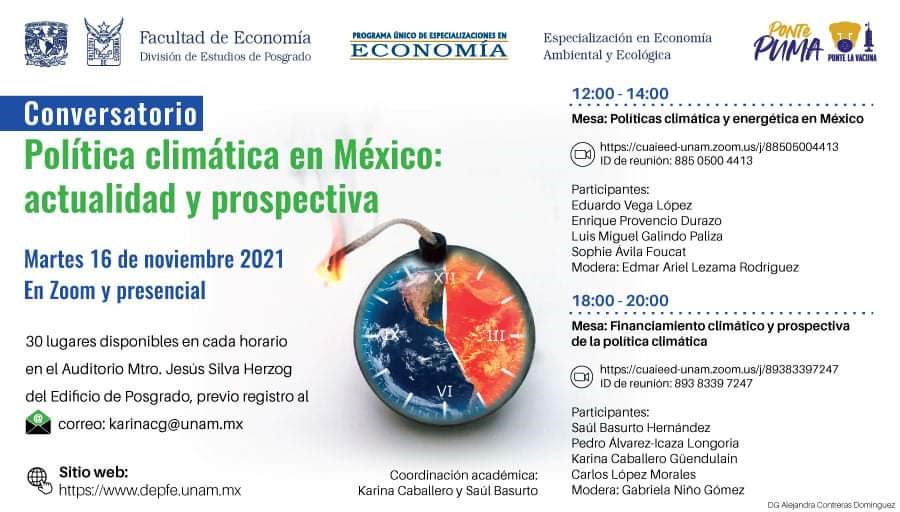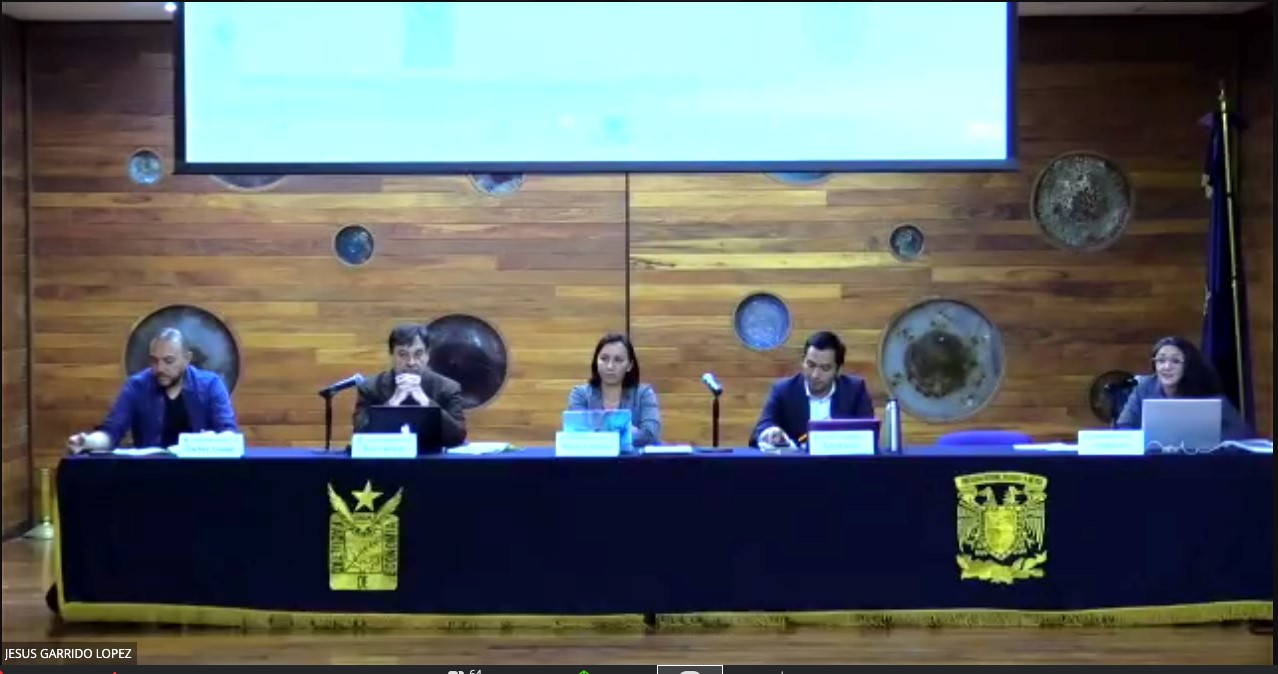During COP26 in Glasgow, a key issue was financing for a climate transition towards the goal of slowing global warming to 1.5°C. The need to take actions and measures to meet this objective has become an emergency. Thus, recognising this importance, the postgraduate studies division of the economics faculty of UNAM opened a dialogue in the discussion “Climate Policy in Mexico: Current and Prospective”, where Gabriela Niño, Mitigation and Financing advisor at Deutsche Gesellschaft für Internationale Zusammenarbeit (GIZ) GmbH moderated the table on “Climate Financing and Prospective Climate Policy”.
In this dialogue space, it was emphasised that while Mexico has climate policies, there is still a long way to go to reach the goal. As Carlos López, professor at the Faculty of Economics at UNAM stated: “Doing nothing is the worst case scenario.” He added: “The current financial system has participated in the environmental problem, so it is necessary to start a long-term financial analysis.” Basurto complemented this statement by assuring that: “In monetary terms, the cost of inaction is much higher than starting to take measures to mitigate climate change.”

The Private Sector in the Fight Against Climate Change
Climate change is not a new problem, nor a government-only decision. For Karina Caballero, “Climate change mitigation and adaptation actions are shared responsibilities between public and private sectors.” However, for Dr. Pedro Álvarez, “The best way to safeguard natural resources is by giving them a value.” For this reason, he mentioned that socio-environmental undertakings are excellent initiatives to comply with climate change adaptation and mitigation measures. He argued that climate finance should pay more attention to this type of activity.
Although the four panellists agreed that the perspective of climate policy in Mexico has been framed within a pessimistic scenario, they also agree that international collaboration is necessary to achieve objectives; also, that it is essential to start doing different research–one that involves local needs. In the same way, they commented that it is essential to provide support in multidisciplinary exercises to create taxonomies, metrics and verifications to avoid greenwashing within the financial sector.

